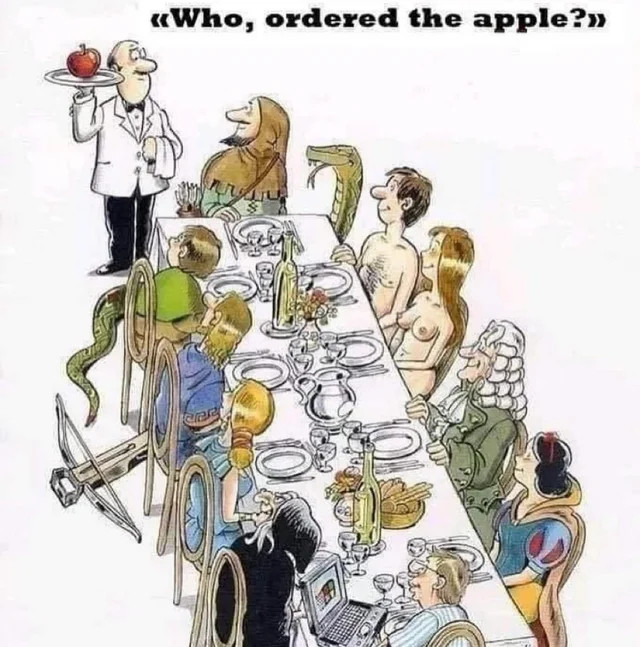[From Unsplash]
Good morning,
Zomato kicked off intense debate when it announced that it will pilot 10-minute delivery of food. Its supporters said it only showed the company’s willingness to push boundaries by innovation. Its critics pointed to the risks and stress the delivery partners are put under with such promises. Besides, what kind of food can be delivered from the station to home in 10 minutes?
While the debate rages on, we would like you to spend some time reflecting on a possible antidote to Zomato’s cult of speed—The Slow Food movement. To better understand the Slow Food movement we have to look at what necessitated it. In his book, In Praise of Slow, Carl Honore writes:
“Hurry took its place at the dinner table during the Industrial Revolution. In the nineteenth century, long before the invention of the drive-thru burger bar, one observer summed up the American way of eating as ‘gobble, gulp and go.’ Margaret Visser notes, in The Rituals of Dinner, that industrialising societies came to prize speed as a ‘sign of control and efficiency’ in formal dining. By the late 1920s, Emily Post, the doyenne of American etiquette, decreed that a dinner party should last no longer than two and a half hours, from the first ring of the doorbell to the departure of the last guest. Today, most meals are little more than refuelling pit stops. Instead of sitting down with family or friends, we often eat solo, on the move or while doing something else—working, driving, reading the newspaper, surfing the net…
“As life got faster, people rushed to replicate the convenience of fast food at home…
“Everywhere food came to be marketed less for its flavour and nutritional value than for how little time it took to make.”
The Slow Food movement emerged as an answer to some of the harmful effects of fast food. Honore writes:
“To roll back the fast-food tsunami sweeping across the planet, Carlo Petrini, a charismatic culinary writer, launched Slow Food. As the name suggests, the movement stands for everything that McDonald’s does not: fresh, local, seasonal produce; recipes handed down through the generations; sustainable farming; artisanal production; leisurely dining with family and friends. Slow Food also preaches ‘eco-gastronomy’—the notion that eating well can, and should, go hand in hand with protecting the environment. At its heart, though, the movement is about pleasure.
“Slow Food also fights for biodiversity. In the food industry, haste leads to homogenization: manufacturers can process inputs—be they turkeys, tomatoes or turnips—more quickly if they are all the same. So the pressure is on farmers to concentrate on single strains or breeds. Over the last century, for instance, the number of artichoke varieties grown in Italy has tumbled from two hundred to about a dozen. Besides narrowing our choice of flavours, the loss of fauna upsets delicate ecosystems.”
What can we do about it? Buy local, buy seasonal, and learn to appreciate the joys of slow cooking. Honore writes:
“The place to start is with the raw materials. Local, seasonal produce. Meat, cheese and bread from conscientious producers. Maybe even a few herbs, like mint, parsley and thyme, grown in the garden or on the balcony…
“The next step is to cook more. After a long, bruising day at work, our reflex is to throw a ready-made meal in the microwave or call out for Thai food. But sometimes that reflex is just that: a reflex. It can be overcome; we can find the time and energy to do a little chopping, frying and boiling.
“Slow Food has captured the public imagination and spread across the planet because it touches on a basic human desire. We all like to eat well, and are healthier and happier when we do.”
Have a peaceful day!
India’s Russia problem
There is much happening in Ukraine and commentators in India have come under fire for not being clear about where India stands on Russia.
Take Pratap Bhanu Mehta, for instance, who argued in The Indian Express that “India and China’s equivocation on Ukraine is appalling. Taking a stand against Western hypocrisy, and looking out for one’s interests are worthy causes. But if the stand against Western hypocrisy, say, in Iraq and Afghanistan, is itself not to be even more hypocritical, then a clear-cut condemnation of Russia is warranted.” Mehta goes on to argue that public statements from India diplomats that they are using the backdoor to pressure Russia does not cut ice either because “There is absolutely no evidence that that message is meant to put serious pressure on Russia, while there is a lot of evidence that Russia seeks to exploit the schism between the rest and West for its own advantage.”
While Mehta’s argument is a compelling one, we thought Vivek Kelkar’s perspective in the Cosmopolitan Globalist on why Indian policy makers are having a tough time most interesting. One of the many reasons he lists is New Delhi’s dependence on Moscow for weapons. And China has gotten into the game as well.
“The acquisition of Russian technology has been key to China’s strategy of combining home-grown innovation with access to advanced foreign dual-use technologies. China’s goal is to reduce its dependence on Russian military platforms. This worries India and the Quad alike. India has no choice but to seek urgent help from the West to wean itself off of its dependence on Russia. It needs a quick supply of replacements for its ageing weapons and new technologies that it can adapt to its needs.”
That is why, Kelkar points out India has been very careful about how the narrative is crafted. There are other nuances as well. Relationships have changed over the years. “India views China as a hostile actor and Russia as a legacy relationship that must be managed carefully. The US has gradually emerged as India’s favoured partner. New Delhi’s efforts to nourish a military relationship with the Quad and Southeast Asia—as opposed to merely trading with them—should be seen from this perspective.”
Dig deeper
- The Quad in focus (The Cosmopolitan Globalist)
- A new world disorder (Indian Express)
Ventilate
As we get back to offices, is there anything we can do till we are 100% sure there won’t be another wave?
Reuters reports on an interesting study from Italy.
“An experiment overseen by the Hume foundation think-tank compared coronavirus contagion in 10,441 classrooms in Italy's central Marche region.
“Covid infections were steeply lower in the 316 classrooms that had mechanical ventilation systems, with the reduction in cases more marked according to the strength of the systems.
With applications guaranteeing a complete replacement of the air in a classroom 2.4 times in an hour, infections were reduced by 40%. They were lowered by 66.8% with four air replacements per hour and by 82.5% with six air replacements, the study showed.”
Dig deeper
What is it with Apple and history?

(Via Reddit)
Found anything interesting and noteworthy? Send it to us and we will share it through this newsletter.
And if you missed previous editions of this newsletter, they’re all archived here.
Warm regards,
Team Founding Fuel



